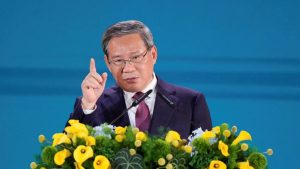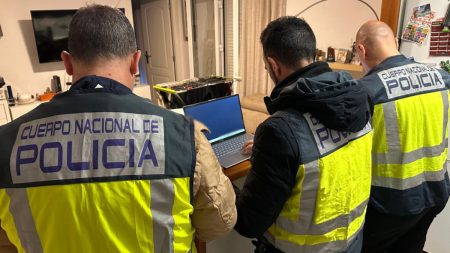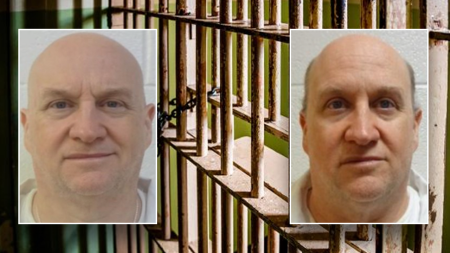Extended Stay in Space: Astronaut Suni Williams Reflects on the Challenges and Triumphs of an Unintentional Eight-Month Mission
Astronaut Suni Williams, currently residing on the International Space Station (ISS), recently shared her experiences during an unexpected extended stay in space, offering a unique perspective on the physical and emotional challenges of living in zero gravity for an extended period. Originally slated for an eight-day mission, Williams and fellow astronaut Butch Wilmore have been orbiting Earth for over eight months due to unforeseen technical issues. This unplanned extension has led to a range of adaptations, both physical and psychological, as Williams navigates the realities of long-duration space travel.
One of the most striking revelations from Williams’ interview with students at her alma mater, Needham High School, was her struggle to recall the sensation of walking. Having spent months floating in the microgravity environment of the ISS, the simple act of placing one foot in front of the other has become a distant memory. This sensory disconnect highlights the profound impact of prolonged spaceflight on the human body, affecting not only muscle strength and bone density but also the very perception of terrestrial movement. Similarly, the absence of lying down or sitting, fundamental aspects of Earth-bound existence, underscores the extent to which the space environment necessitates a complete reorientation of bodily awareness.
Beyond the physical adjustments, Williams candidly addressed the emotional toll of the extended mission, particularly the strain on her relationship with her aging mother. While technology allows for regular communication, the unexpected separation has undoubtedly altered the dynamics of their connection. The planned short trip, which would have allowed for in-person interaction, has transformed into a prolonged absence, requiring both Williams and her family to adapt to a new form of relational maintenance. This emotional dimension of space travel emphasizes the human element behind the technological marvels, reminding us that astronauts are not just explorers but also individuals with families and loved ones back on Earth.
Despite the challenges, Williams and Wilmore have continued their duties aboard the ISS, contributing to scientific research and maintaining the station’s operations. Recently, they embarked on their first spacewalk since the mission’s unplanned extension, a significant event that marked a new record for Williams. She became the female astronaut with the most cumulative spacewalking time, a testament to her resilience and dedication to space exploration. The spacewalk itself involved essential tasks, including removing a malfunctioning antenna and collecting samples to assess microbial survival outside Earth’s atmosphere. This activity not only highlights the practical demands of maintaining a space station but also contributes to scientific understanding of life beyond our planet.
The unexpected duration of their mission has presented Williams and Wilmore with an unprecedented opportunity to study the long-term effects of space travel on the human body. Their experiences provide valuable data for future missions, especially those involving extended journeys to Mars and beyond. While the physical challenges of microgravity are already well-documented, the psychological impact of prolonged isolation and confinement remains an area of ongoing research. Williams’ candid reflections on the emotional adjustments she has made offer valuable insights into this aspect of spaceflight, informing strategies for supporting astronaut well-being during future deep-space missions.
The extended stay on the ISS has been a complex experience for Williams, marked by both physical and emotional adjustments. While the loss of familiar sensations like walking and lying down highlights the transformative effect of space travel on the human body, Williams’ reflections on her relationship with her family emphasize the emotional resilience required for such missions. Her record-breaking spacewalk not only demonstrates her professional dedication but also symbolizes the ongoing human endeavor to push the boundaries of exploration.
As Williams and Wilmore await their return to Earth, scheduled for late March or April via the SpaceX Crew-10 mission, their extended stay on the ISS serves as a testament to human adaptability and the enduring spirit of exploration. Their experiences provide valuable lessons for future long-duration spaceflights, highlighting the importance of both physical and psychological support for astronauts venturing beyond our planet. Their story stands as a compelling narrative of resilience, scientific advancement, and the unique challenges and triumphs of human spaceflight.










